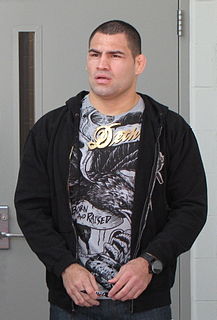A Quote by Matt de la Pena
Once I got into college, I discovered literature - in particular, multicultural literature. I just started to understand the power of story and narrative, and you know, like anyone else, I kind of wanted to do it, too.
Related Quotes
I got to college in '99, and I went to study literature and writing, and so within a couple years we had Bush elected, 9/11, we were at war, so I was sort of having my political and spiritual awakening at the same time I was becoming an adult, and that's a lot of stuff at once. I became very focused on the state of the world, and I started studying that stuff more, and I just had a real identity crisis. I couldn't even really just study literature.
It is only through literature that one can put oneself in someone else’s shoes and understand the other’s different and contradictory sides and refrain from becoming too ruthless. Outside the sphere of literature only one aspect of individuals is revealed. But if you understand their different dimensions you cannot easily murder them.
Early on in life I knew that I was a writer, that I just wanted to write, I love books, I love literature and after graduating college, I kind of wandered around in Europe learning languages and writing novels and never led anywhere. And then I got into like journalism in New York as a way to kind of maybe find my way into the field and it wasn't a good fit. It just wasn't right for me.
I always thought books were just the canon, things I couldn't identify with. And then I was introduced to really amazing multicultural literature - it was all things I was trying to do unsuccessfully in my poetry. It really just changed everything. I was introduced to authors like Sandra Cisneros, Gabriel García Márquez, Junot Díaz, and a lot of African American literature, as well.
Books should confuse. Literature abhors the typical. Literature flows to the particular, the mundane, the greasiness of paper, the taste of warm beer, the smell of onion or quince. Auden has a line: "Ports have names they call the sea." Just so will literature describe life familiarly, regionally, in terms life is accustomed to use -- high or low matters not. Literature cannot by this impulse betray the grandeur of its subject -- there is only one subject: What it feels like to be alive. Nothing is irrelevant. Nothing is typical.
My life has had a lot of fits and starts: before I studied literature at all I was a musician, and began undergrad as a conservatory student. I started studying literature in my third year of college, when I took a poetry course with James Longenbach that was pretty extraordinary. It changed my life.
But when I say it isn't meant for anyone's eyes, I don't mean it in the sense of one of those novel manuscripts people keep in a drawer, insisting they don't care if anyone else ever reads it or not.The people I have known who do that, I am convinced, have no faith in themselves as writers and know, deep down, that the novel is flawed, that they don't know how to tell the story, or they don't understand what the story is, or they haven't really got a story to tell. The manuscript in the drawer is the story.




































